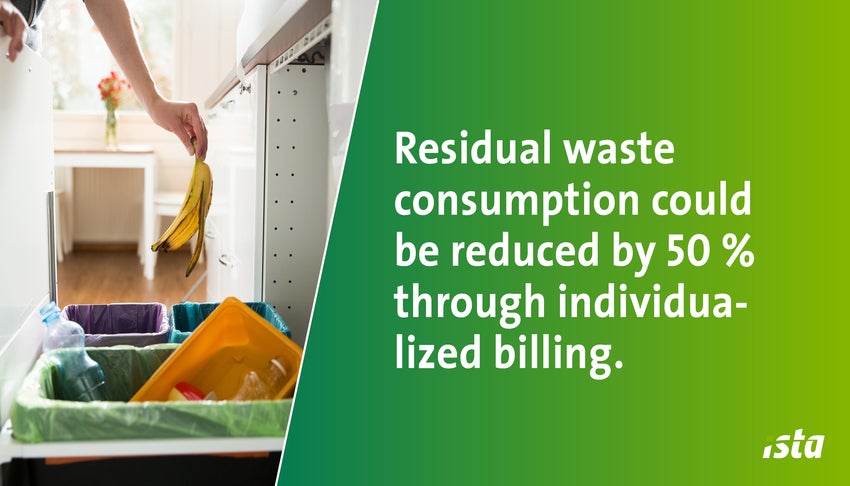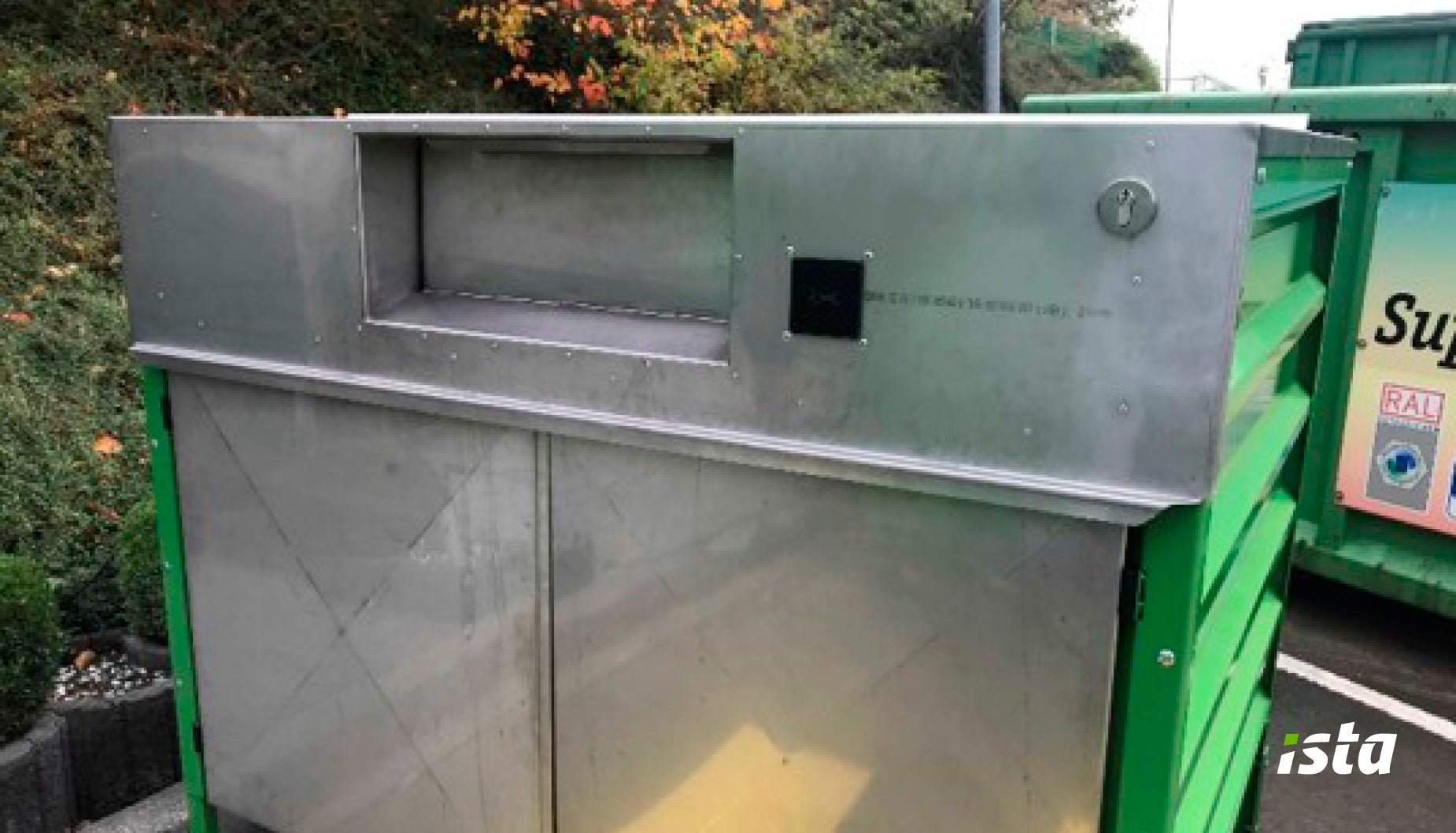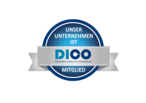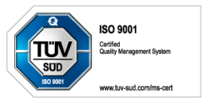
- Internet Corporate
- Contact & Service
- ista Blog
- innovation@ista: waste container with lock for individual billing

Individual billing is standard for heating costs; for residual waste it's (still) the exception. An innovative pilot project in Luxembourg could change that: the residual waste container with locking mechanism for apartment buildings halves the amount of non-recyclable waste. ista has contributed its experience in recording consumption.
How innovative is ista? What ideas is the company involved in? Where are new concepts that optimise housing and property management being developed? In the series innovation@ista we go on a journey around the branches of the real estate service provider – always in search of ideas that benefit tenants, landlords and the environment. ista Luxembourg has, for example, managed to achieve all three goals with an innovative waste concept. The residual waste container with locking mechanism for apartment buildings ensures that the residents separate their waste better – this scores points in terms of sustainability. At the same time, tenants and landlords save money when they reduce the amount of residual waste they dispose of.
ista Luxembourg: less residual waste, fair billing
Waste separation and waste avoidance are major issues in Luxembourg. The country is even currently working on a law that makes the zero-waste strategy mandatory. The goal: Luxembourg's residents should recycle as much of their waste as possible; the country should no longer export waste. The way of achieving this is a sophisticated waste separation system that divides the waste into 20 different types. If everyone keeps to the rules, less residual waste should be produced. In practice this does not always work.

It is in this context that the residual waste container with locking mechanism which ista Luxembourg has developed together with the semi-public waste disposal company SuperDrecksKëscht® comes into its own: residual waste in apartment buildings is disposed of in 20-litre portions via a locking mechanism. The tenants open the hatch with a chip or transponder; the residual waste falls into a large container. In order to establish who throws away less or more waste, the system counts the number of times the locking mechanism is opened and anonymously assigns the opening action to the particular tenant. SuperDrecksKëscht® links the number with the residents' data. So individual consumption can be determined – and billed.
Waste separation: Success breeds success
"Individual recording of waste volumes encourages people to separate waste better and produce less residual waste," Joachim Colles, ista Luxembourg S.à r.l., explains. "We simply translated our experience with consumption-dependent heating cost billing to the waste system. And it worked." In the pilot project some 50 per cent less residual waste was produced – a success that SuperDrecksKëscht® now wants to replicate throughout the country in collaboration with all municipalities: 4,000 buildings are to be equipped with the system by 2023. Parallel to this, talks are already being held in Sweden, Switzerland and the Saarland in Germany.








